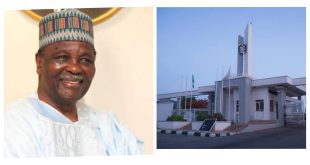By Chuks Peter, DELTA
Former Delta State Governor, Chief James Onanefe Ibori, has criticised the Supreme Court’s recent judgment granting financial autonomy to local governments in Nigeria.
Ibori, who is often referred to as the chancellor of the 1999 set of governors, described the ruling as a significant setback to the principles of true federalism.
In a statement released on his verified X handle (formerly Twitter) a few hours after the judgment was delivered on Thursday morning, Ibori expressed his discontent with the court’s decision.
The Supreme Court’s landmark judgment grants full financial autonomy to local governments and prohibits state governors from interfering with the funds allocated to councils in their states.
Also, the ruling states that governors do not have the authority to dissolve democratically elected local government council chairmen and replace them with caretaker committees.
Reacting to the judgment, Ibori stated, “The court ruling on the matter is an assault on true federalism.”
He argued that the Supreme Court has dealt a severe blow to the principle of federalism as outlined in Section 162(3) of the 1999 Constitution (as amended).
This section specifies that any amount standing to the credit of the Federation Account shall be distributed among the Federal, State, and Local Government Councils in each state as prescribed by the National Assembly.
Ibori further elaborated, “Section 162(6) provides additional clarity on the subject. Each state shall maintain a special account called the ‘State Joint Local Government Account,’ into which all allocations to the local government councils of the state from the Federation Account and the state government shall be paid.”
He emphasised that the Federal Government has no right to interfere with the administration of local governments under any guise.
According to Ibori, there are only two tiers of government in a federal system. While he opposes state governors meddling with local government resources, he asserted that the judgment impedes the independence of the states as enshrined in the constitution.
Ibori expressed several concerns regarding the implications of the ruling thus, Constitutional Interpretation: The Supreme Court’s ruling appears to contradict the explicit provisions of Section 162 of the 1999 Constitution, raising questions about judicial interpretation and whether the court has overstepped its bounds.
He noted that the ruling potentially shifts the balance of power between the Federal Government and states by allowing federal intervention in local government finances, centralising more power at the federal level.
He also noted implication of State Autonomy. He said, “The decision could erode state autonomy, as states are meant to have significant control over their internal affairs, including the administration of local governments, in a federal system.
Financial Independence is another area he looked at. Noting that the ruling may impact the financial independence of states and local governments. Direct federal intervention in local government finances could be used as a tool for political leverage.
Ibori also ne Precedent Setting as one of implications of the riling. He noted that the decision could set a precedent for further federal interventions in areas traditionally reserved for state governance, leading to a more centralised system over time.
Ibori concluded, “Local governments must be democratically elected, as the constitution stipulates, but withholding their allocation is not the way to go. It’s wrong.”
He hopes that the judgment will be reviewed promptly, as it stands the concept of federalism on its head.
“As Justice Oputa JSC of blessed memory once said, ‘we are not final because we are infallible, but we are infallible only because we are final.'”
“It is my sincere hope that the judgment delivered today will be reviewed at the earliest time possible,” Ibori said.
 National Telescope national telescope newspaper
National Telescope national telescope newspaper



